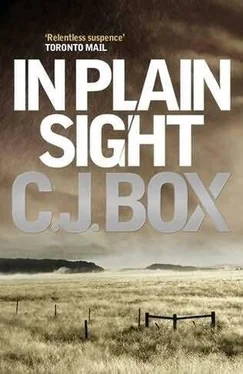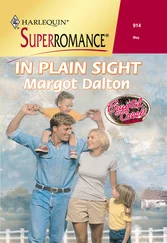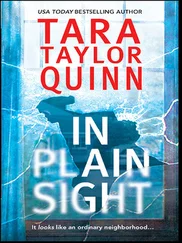“So,” Robey contined, “the third generation inherits a going concern but they really don’t give a shit about how they got it. The third generation splinters. A couple of the sons and daughters want to keep the place, and the others want to do something else. So when it comes time to figure out who owns what, the lawyers are called in to battle it out. It’s like couples who divorce without considering the best interests of the children because they’re so bitter. But instead of children, we’re talking about the ranch itself. There is only so much land in the world, it’s finite. Especially good, scenic, or productive land that can’t speak for itself. The litigation gets so messy that sometimes it’s unbelievable. Other people want that land, that asset. So we’ve got brothers against brothers and sisters against sisters. You can really see the worst in human nature in a situation like that, and you just want to grab those idiots and knock their heads together and say ‘Wake up! Look what you’re doing to a place your ancestors put all of their sweat and blood into!’”
Robey rose and pretended he was grasping litigants by their necks and smashing their heads together. Joe looked around to see if anyone at the bar was watching. Fortunately, they weren’t.
Joe said, “And when it comes to our situation here with the Scarletts and the Thunderhead Ranch, we’ve got the curse in spades, right?”
“It’s like the curse has gone nuclear,” Robey said. “In this case, the original ranch was established in the eighteen-eighties, which was when most of the big ranches got going in our part of the country. Before statehood, and before homesteaders started spreading their wings. For the Thunderhead Ranch, a man named Homer Scarlett left West Virginia and used a small inheritance to buy what was then a small five-thousand-acre ranch on the river.”
“That would be the original Thunderhead Ranch?” Joe asked.
Robey shook his head. “Nope, the Thunderhead was the ranch next door at the time. Homer Scarlett, the great-grandfather, acquired it through somewhat dubious means-I think he won a big chunk of it in a poker game or something-and added it to his own holdings. He picked up five or six other small ranches along the way, and kept adding on. He was ruthless, from what I’ve heard. But he was also a hell of a businessman, because he thrived when others around him were going broke. As he added property, he put them all under the umbrella of the Thunderhead Ranch, I guess because he liked the name. Pretty soon, Scarlett owned sixty thousand acres outright and another hundred thousand acres on long-term lease from the government. He used his influence to make Saddlestring the county seat, and for a while there they almost renamed this town Scarlettville. Did you know that?”
Joe shook his head. “No. How do you know all of this?”
Robey laughed wearily. “Because I’m on the museum board and a few weeks ago we took a tour through the new Scarlett wing that’s scheduled to be dedicated next month. In fact, your mother-in-law was on the tour. It’s a damned nice addition to the building, and there is a special room to honor the family. Opal insisted on the display, and provided the photos and documents.
“Anyway,” Robey continued, “Homer had a son named Henry and two daughters named June and Laura. In those days, it was a lot simpler than it is now, and Henry assumed control of the ranch because he was the only male heir. There wasn’t any squabbling about control, even though the daughters legally had the same claim to it. Henry Scarlett took it over in the mid-nineteen-thirties, and the two daughters got nice little cottages on the ranch. June and Laura never married, so they produced no heirs. Henry had a couple of sons, though, named Wilbur and Dub. Dub died in combat at Normandy, so Wilbur had a clear line.”
“And Wilbur married Opal,” Joe said. “Who eventually had three sons.”
“Right.”
“So when did Wilbur die?”
“Early 1970s,” Robey said. “He was driving a truck across an old bridge over the river on the ranch when the bridge collapsed. I read about it. He was pinned inside the vehicle, and drowned in six inches of water.”
“And Opal got everything?”
Robey signaled for two more beers. “The whole thing lock, stock, and barrel. If Wilbur specified which one of his sons got the place, or if he had plans to divide up the ranch-no one knows. There wasn’t a will.”
“So where are we now?” Joe asked.
“We are in limbo, ownership hell,” Robey said. “Arlen claims Opal assured him the ranch would be his because he’s the oldest. Hank says Opal told him the same thing, and that she never trusted Arlen. Opal has two lawyers here in town, and both thought the other took care of the estate planning, but it turns out neither did. The ranch is a corporation with Opal Scarlett as its sole owner, with no management agreement, no will, no nothing.”
“What’s it worth?” Joe asked, thinking of the vast acreage, the meadows, the buildings, the twenty miles of riverfront.
“Tens of millions,” Robey said. “An appraisal will need to be done, but we know we’re in the mid-teens. If it were put up for sale, there would be buyers from all over the country and the world. These days, all the rich corporate guys want to own a ranch.”
Joe whistled.
“Until Opal’s proven dead and there’s a court order-or a will is found-nothing can be done to establish ownership or a succession plan,” Robey said. “Those brothers just continue to live out there in conflict. They could decide to sell the place and pocket the money, or one could buy it outright from the other. But in order to do that, they’d need to sit down and talk like human beings. Instead, they’ve both hired lawyers, accountants, and soldiers of their own, and they’re preparing for battle. My fear is that the war won’t make it as far as a courtroom, that it’ll start breaking out all over this valley.”
In the meantime, Robey said, the case against Tommy Wayman was also in limbo. He told Joe that although Tommy had confessed to tossing Opal in the river, the lack of a body prevented him from filing charges. In a legal holding action, Robey had persuaded Judge Pennock to order Tommy to stay in the area and check in weekly until the situation could be resolved.
Joe said, “This is about a lot more than the money, isn’t it?”
Robey looked quickly around the room to see who had entered since they started talking and that no one appeared to be eavesdropping. He leaned forward, lowered his voice, and said, “Joe, Opal was a damned monster. That’s what I’m finding out, the more I dig into it. She played those two brothers against each other all of their lives, telling one he was the favorite and that he’d get everything, denigrating the other, and vice versa. No wonder Wyatt is nuts, if he grew up with all of that going on around him. Arlen and Hank each really, honestly believe it is his personal destiny to control the ranch, and to continue the Scarlett legacy. That’s what they both call it, with a straight face, the ‘Scarlett legacy.’ Even Wyatt uses that term, easy as pie. According to Hank, Opal distrusted Arlen so much that she hired a third lawyer in secret to draw up a will giving Hank the whole place, but the lawyer was instructed not to come forward until Opal was declared dead. Hank says he’d rather ‘Mother’ show up than have her declared dead, of course, but if she doesn’t, he’s absolutely confident the ranch will be his. That’s how crazy these brothers are.”
“A third lawyer?”
Robey laughed, clearly not believing there was one. “Hank claims it’s Meade Davis. You ever hear of him?”
Davis was one of Saddlestring’s oldest and most prominent lawyers. So prominent, in fact, that Joe couldn’t recall his ever taking a case. Davis was involved in real estate, convenience stores, and he owned the cable television company.
Читать дальше












